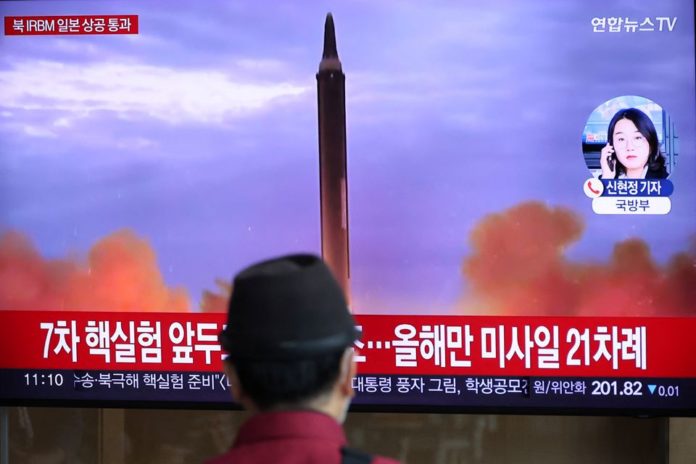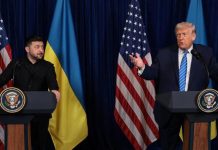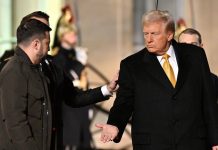SEOUL/TOKYO, Oct 4 (Reuters) – Nuclear-armed North Korea test-fired a ballistic missile further than ever before on Tuesday, sending it soaring over Japan, for the first time in five years, and prompting a warning for residents there to take cover.
It was the first North Korean missile to follow such a trajectory since 2017, and its estimated 4,600 km (2,850 mile) range was the longest travelled by a North Korean test missile, which are usually “lofted” high into space to avoid flying over neighbouring countries.
In response to the test, U.S. and South Korean warplanes practised bombing a target in the Yellow Sea and Japan warned its citizens to take cover and suspended some train services while the missile passed over its north before falling into the Pacific Ocean.
It was the latest in an escalating cycle of muscle flexing in the region. A U.S. aircraft carrier made a port call in South Korea for the first time since 2018 on Sept. 23, and North Korea has conducted five launches in the last 10 days.
The period has also seen joint drills by the United States, South Korea and Japan, and a visit to the region by U.S. Vice President Kamala Harris, who stood at the fortified border between the Koreas and accused the North of undermining security.
North Korea accuses the United States and its allies of threatening it with exercises and defence buildups.
Recent tests have drawn relatively muted responses from Washington, which is focused on the war in Ukraine as well as other domestic and foreign crises, but the U.S. military has stepped up displays of force in the region.
In the U.S. and South Korean response to the North’s test on Tuesday, a South Korean air force F-15K jet dropped a pair of guided bombs on a target off its west coast, in what South Korea’s military called a demonstration of precision strike capability against the source of North Korean provocations.
Japan said it took no steps to shoot the missile down but Defence Minister Yasukazu Hamada said it would not rule out any options, including counterattack capabilities, as it looks to strengthen its defences in the face of repeated missile launches from North Korea.
South Korea also said it would boost its military and increase allied cooperation.
The United States strongly condemned North Korea’s “dangerous and reckless” launch.
“This action is destabilising and shows the DPRK’s blatant disregard for United Nations Security Council resolutions and international safety norms,” National Security Council spokesperson Adrienne Watson said in a statement, using the initials of North Korea’s official name.
U.S. Secretary of State Antony Blinken held phone calls with his South Korean and Japanese counterparts during which they “strongly condemned” the test. The launch violates U.N. Security Council resolutions, which have imposed sanctions over North Korea’s nuclear and missile programmes.






